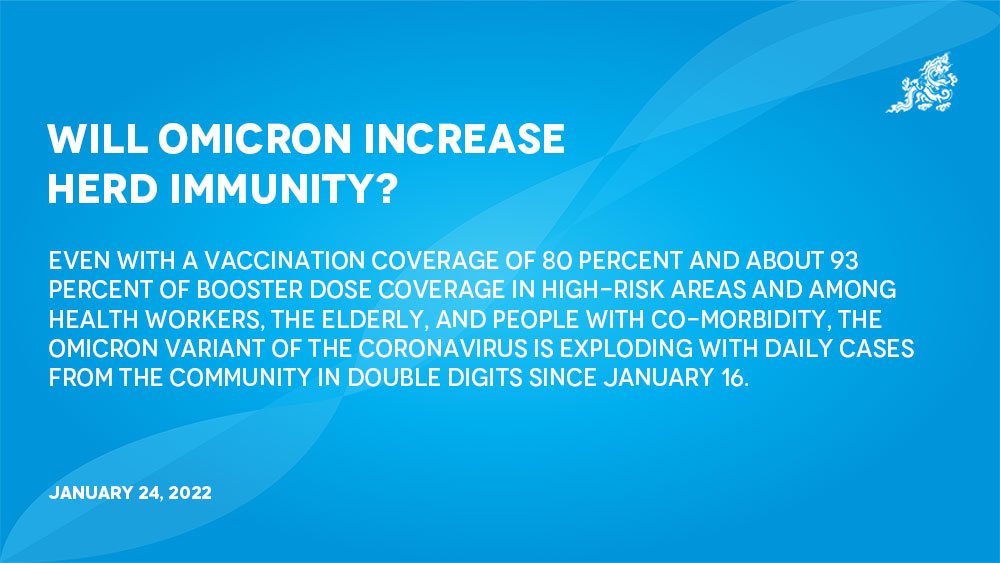Dechen Dolkar
Even with a vaccination coverage of 80 percent and about 93 percent of booster dose coverage in high-risk areas and among health workers, the elderly, and people with co-morbidity, the Omicron variant of the coronavirus is exploding with daily cases from the community in double digits since January 16.
The daily cases peaked to 141 as of yesterday, including those testing positive in quarantine facilities and imported cases.
As of yesterday, 143 community cases were detected, with 306 positive cases from contact tracing, according to the Ministry of Health (MoH).
When the country rolled out the vaccination, it was hoped that an 80 percent coverage would achieve herd immunity. The highly infectious Omicron variant that has affected us since January 16 has raised many questions about the desired herd immunity.
Herd immunity is a scientific term describing the point at which a population is protected from a disease, either by enough people being vaccinated or by people having developed antibodies by having the disease.
Asked if the rapid spread of Omicron would help achieve herd immunity in the country, a member of the Technical Advisory Group, Dr Sonam Wangchuk said that it was likely but there is no evidence what proportion of population infections is adequate to provide herd immunity.
However, a health official explained that transmission rate differs with different variants of coronavirus and it will be difficult to estimate the threshold of herd immunity for Omicron. “Vaccine coverage for any vaccine above 80 percent will provide protection to the population; therefore, we believe that the current vaccine coverage will have an impact on interruption of transmission,” the official said. “While Covid-19 vaccines are highly effective at delivering immunity, no vaccine is 100% effective.”
International research also shows that Covid-19 vaccines and prior infection don’t provide lasting protection against infection and transmission, especially with the Omicron variant. That makes it impossible for enough of the population to become immune to stop the virus from spreading.
Health experts said that one of the main objectives of vaccination is to reduce the severity of illness and hospitalization.
“We would like to clarify that vaccination does not completely prevent contracting Covid-19. However, with high vaccination coverage, the number of cases with severe illness or requiring hospitalization will be greatly reduced.”
Since the Omicron variant is more transmissible, the ministry is also expediting the vaccination of children aged 5-11 years old. “At the current stage, we cannot determine the breakthrough rate in Omicron,” a health expert said.
The booster dose round is scheduled to be rolled out starting January 24.
No serious patients of Covid-19
While the number of positive cases have reached 801 as of last night, health officials said that there are no patients requiring oxygen or hospitalization, meaning there are no patients with severe cases of Covid-19.
All the positive patients are in isolation facilities.
Omicron is driving a record number of cases in countries around the world, but the resulting illness is generally less severe compared to previous variants. There is a general consensus among virologists around the world that the Omicron variant of coronavirus could help build herd immunity in societies due to its high transmissibility.
The international research also states that Omicron will give much of the population what some scientists call “super immunity”: stronger protection against new variants and even future coronaviruses.


